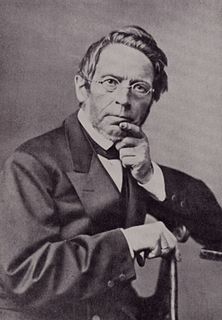A Quote by Stefan Zweig
But, in history, practical usefulness never determines the moral value of an achievement. Only the person who increases the knowledge humanity has about itself and enhances its creative consciousness permanently enriches humanity.
Related Quotes
When physics, chemistry, biology, medicine, contribute to the detection of concrete human woes and to the development of plans for remedying them and relieving the human estate, they become moral; they become part of the apparatus of moral inquiry or science? When the consciousness of science is fully impregnated with the consciousness of human value, the greatest dualism which now weighs humanity down, the split between the material, the mechanical and the scientific and the moral and ideal will be destroyed.
I think that there is an infinite creative force that generates all consciousness and all matter and we are all connected and if you align yourself with this infinite creative force then you can be positive and you can be beautiful, I don't think its a person or god, I don't believe in any particular doctrine or dogma, only that humanity is connected.
The costs of an ignorance of science are nor just practical ones like misbegotten policies, forgone cures, and a unilateral disarmament in national competitiveness. There is a moral cost as well. It is an astonishing fact about our species that we understand so much about the history of the universe. the forces that make it tick, the stuff it's made of; the origin of living things, and the machinery of life. A failure to nurture this knowledge shows a philistine indifference to the magnificent achievements humanity is capable of; like allowing a great work of art to molder in a warehouse.
"For even the most childish intoxication with progress will soon be forced to recognize that writing and books have a function that is eternal. It will become evident that formulations in words and the handling on of these formulations through writing are not only important aids but actually the only means by which humanity can have a history and continuing consciousness of itself."
Oh my God, does art engender humanity? It awakens your humanity. But humanity has nothing to do with political theory. Political theory is in the interests of one group of humanity, or one ideal for humanity. But humanity-my heavens, that's what proper art renders. We have a paradox. Going into the deepest aspects of inner space connects you with something that is the most vital for the outer realm.
There is, however, a moral basis for the vegetarian diet for which the indeterminate value of an animal's life takes on irrelevance. And that moral basis is a concern for the environment, a value as absolute as the value we all place on human life, since humanity will not survive for long on a poisoned planet. To be an environmentalist who happens to eat meat is like being a philanthropist who doesn't happen to give to charity.
Science enhances the moral value of life, because it furthers a love of truth and reverence-love of truth displaying itself in the constant endeavor to arrive at a more exact knowledge of the world of mind and matter around us, and reverence, because every advance in knowledge brings us face to face with the mystery of our own being.







































